A little about Clint (as copied and pasted in part from his web-site):
Be warned that I am not an interesting subject (not even to myself). In compensation for this, I have used a little creative license. Not lied; oh, certainly not. Everything you read here is perfectly true---it merely isn't always factual. And, in certain circumstances, its truth may reside in persons, places, and concepts other than myself. But everything is true in some way, shape, form, instance, and time, and for the present this is my truth.
I write novels. It's hard to be definitive beyond that because there aren't many more consistent characteristics of my writing. I write for adults, teens, and children in any genre that strikes my fancy, though I mostly write fantasy and historical fiction. (I suspect my consistent devotion to fantasy in particular stems from the liberating inconsistencies it allows me as a storyteller.) In that past I've written and published everything from academic essays and journalistic articles to short stories and commentaries on writing and literature. I've also worked as an academic editor as well as a professional technical writer and freelance editor of fiction. Now I'm completely devoted to my novels, where I write about Olympic penkrationists suffering marital trouble, and obsessive-compulsive robber barons committed to mental asylums at the turn of the twentieth century, and redneck fairies, and demonic angels patronizing towns in puritan America, and cows falling on dragons, stuff like that.
Born and raised in Utah, I still live in the Salt Lake area. In addition to my writing, I work at Salt Lake Community College tutoring writing, predominantly in one-on-one sessions with students. As I work at an open-enrollment college, I've met with every make and manner of student imaginable, including many non-native English speakers at different levels of language acquisition and students with disabilities, significant health problems like cancer, and other tremendous challenges. The range of different writers I've worked and interacted with in my roughly 2,600 sessions has been invaluable to my own progress as a writer and teacher of writing.
Other things that may be of interest: I am a member of the Church of Jesus Christ of Latter-day Saints, better known as the LDS or Mormon Church. If this is irrelevant to you, well and good; if this is relevant to you, I hope it is in a positive way. It is positively relevant to me, which is all that matters. I also belong to the following organizations: The Science Fiction and Fantasy Writers of America, The Society of Children's Book Writers and Illustrators, and The League of Utah Writers (I'm a member of their Oquirrh chapter).

About Green Dragon Codex: Scamp has spent his whole life finding trouble, and it's all worth it when he discovers a treasure so priceless a dragon died to protect it.
But as he seeks to uncover the mystery of the dragon's chest, he is hunted by evil wizards and supposedly good dragons, meets odd strangers who have power over his fate, and is forced to confront a terrifying question: do good or evil ever really let us chose between them?
Here is my interview with Clint:
M.B.: When did you first know you wanted to be an author?
CLINT: Not until I’d written my first book, possibly later. I don’t think it was a moment of realization. I was twenty-two when it happened, however it happened. Previous to that moment, I’d never felt the need, impulse, inclination, or even an itch to write. Growing up, I didn’t keep a journal or write letters or anything that involved putting ink on paper. I was a voracious reader of many genres—though I did keep mostly to fiction—but that appetite never translated into a desire to write. It was only after nearly a decade of chronic insomnia, a condition that turned my entire teenage years and young adulthood into a desert of lethargy, isolation, and depression, that I first felt an inexplicable need to DO something. Reading was no longer enough; I needed to create something, anything that would challenge my mind to wake from the static torpor of sleep and social deprivation. Why I decided to write a story, I don’t know. Maybe because my reading had become my only real connection to the world and people in it, even if only through dramatic distillations of reality. Whatever the reason, I challenged myself to write three hundred pages, all the while certain that was impossible. Roughly nine hundred pages later (280,000 words) I finished my first novel, which is also the first story I ever wrote. At some point around this time I realized I wanted to be an author, or perhaps needed is a more appropriate term. For the first few years my writing became the only relevant and material thing in my life. Now I can’t imagine not telling stories through words.
M.B.: What was the pathway like for you to get your first book published?
CLINT: Long and squiggly and paved in tiny bricks of bald luck. The first five books I wrote—not to mention three novellas and a dozen or so short stories—earned me about a hundred and fifty rejection letters (and zero cents). During this wasteland stage of my career, I sought to commiserate with other writers, which proved the finest professional decision I ever made. I joined the League of Utah Writers (LUW) after seeing an ad in a small city paper by happenstance. Within a few months I received in invitation to Sara Fitzgerald’s first book release party. At this time I hardly knew her, so I have no idea why I went but I did. At the party Sara introduced me to Rebecca Shelley, who would become a person of interest in the publishing world about a year later, and to me particularly a year after that. In the meantime, I started to send my writing to the LUW’s annual writers’ contest and win awards. Over a three-year period I won first-place awards in non-fiction and fiction, both short and long forms, for both adults and YA. As a fellow member of LUW, Rebecca saw this. Then I heard she’d gotten a contract for a middle grade novel from Mirrorstone, an imprint of Wizards of the Coast (publisher of the Dungeons and Dragons role playing game). I didn’t think much of it beyond getting green with envy (you may consider this a foreshadowing of happy future events) until I learned that Rebecca’s editor in the Dragon Codices, Stacy Whitman, was going to be a guest at a conference I would attend (LTUE at BYU every February). Marshalling every shameless bone in my body, I asked Rebecca if she’d introduce me to Stacy, which she very kindly did. Rebecca’s advocacy resulted in an invitation by Stacy to send her a proposal. I took about two weeks, as I recall, plotted out a unique trilogy, wrote the sample chapters and synopsis, and sent it off. A month or two later I received an email from Stacy. She said she didn’t have a place for the trilogy but she liked the sample chapters so much she wanted to give me a shot at a series they already had slated for release. As my book included a green dragon, she told me to cut my three books down to one—as my first book was 280,000 words, you can imagine how much I love cutting—and submit it as a proposal for Green Dragon Codex. Seven months later (and I swear each of those months had at least six weeks in them) Mirrorstone offered me the contract. That’s the long version. I can also express it in numbers: my path to professional novel publication spanned five books (eight prior to release) totaling well over 1,000,000 words in rough draft. Oh, and after all that, I’d never written anything for children when I was contracted to write a children’s novel. Big hint: don’t do that if you can avoid it.
M.B.: Were you ever discouraged along the way? If so, how did you deal with it?
CLINT: Only every other day, plus Wednesday, Thursday, and Saturday evenings, and every day of the month with a one in it. It wasn’t so bad, though. Coming from the zombie-state of insomnia, any interaction with living beings was refreshing—even getting form letters from computers rejecting you in pretense of a human. Rejection letters are like falling boulders though; they keep coming but at some point they stop hurting. I thought I was rejection proof until those seven months (or 42 weeks) waiting on Mirrorstone, which I spent whining and stomping around like a petulant elephant. Getting the contract purged me of that childishness. Now I’ve had a publisher sitting on a requested manuscript for six months, and I only stomp like a rhino. That’s half as petulant, maybe less.
M.B.: What is your writing schedule like?
CLINT: When I’m writing a draft (and I don’t write every day), I start writing very first thing when I get up and don’t stop until I have at least 1,500 words. Typically, this will take between one and a half and three hours. I write Monday through Saturday, sometimes taking a day off between chapters to conceptualize what comes next. If I don’t get 35,000 words a month I’m really in a slump. While I can’t write for much more than three or four hours most days, I can edit pretty much any time on any schedule, so that’s much easier to fit around my other job. I write books beginning to end without breaks other than those days between chapters and Sundays off. Now that I have a web site with a blog and have to write content from promotion and the like, I’ll be doing much of that writing in the odd moments I have in the morning, but mostly in the evening after work.
M.B.: Where do your ideas come from? How do you know the idea is
good enough to write a book about it?
CLINT: My ideas come from two places: anywhere and everywhere. There is no facet of my life or experience that doesn’t give me ideas for stories. It isn’t a matter of getting ideas, but of filtering out mediocre ideas and shaping those with the potential to be good. And we do shape our ideas; they don’t come in grade-A story form, and they never come complete. My stories are the result of percolation. I get ideas—fractured, isolated bits of dialogue, or theme, or archetypal emotion, and other stuff—that I write down on scraps of paper that eventually make their way onto my computer. They stay there and in my mind, where they bounce around and accrete until a genuine story concept is born. That concept I then work and build consciously, stressing conflict and the inherent emotive theme of the story. I do this until I become confident enough to begin writing.
M.B.: What words of advice do you have for other writers who desire to
have their manuscripts become books in print?
CLINT: 1) Set goals. Any real goal means making a firm choice, which entails sacrificing other options. To know how to approach your writing career, you need to know what you most want and what that will mean giving up. If you want to publish profitably, you’ll have to compromise on your stories and write, to some degree, according to market demands. You won’t be able to write in certain genres or forms, or be too adventuresome or experimental in your composition. And you’ll have to do an awful lot of marketing and educating yourself into publishing. Finally, you’ll have to accept that fact that as a professional artist you’re competing with the best in your field, not so different from a professional musician or athlete. If you aren’t confident that you can work yourself into the truly elite, you may never reach your goal. If none of this dissuades you—and nothing else I or others could say will—then decide to publish and work until you do. If other things are more important, such as creative control or not sacrificing time and other aspects of life for your writing, then accept that you probably won’t publish to the degree you’d like, or at all. Whatever your choice, make it and accept it, good, bad, and all. 2) Read. Read inside and outside the genre you write. Read classics and current bestsellers and whatever catches your eye. Recognize what you like and don’t like, then try to figure out why. Learn to read like a writer. Evaluate a text as a performance, and try to understand why you applaud or pointedly do not. Read and don’t stop. 3) Write. Write what you want to publish and experiment in ways you’ll never seek to publish. Write fiction and non-fiction, short and long form, in every perspective and tense, with point of view characters of different genders. Write to the best of your ability, totally invested in the product, then be dissatisfied with what you end up with and revise it. Revise it until it gets good, then edit it. Then write something new. 4) Educate yourself into publishing. Research agents and publishers and how to communicate in their world. Learn the language they use, such as SASE and simultaneous submission, then become fluent in its use. 5) Submit. Start with the best agents and houses five at a time, if they allow simultaneous submissions, and move down your list. When you get form rejections, send out another round. When you get personalized rejections, use their information to refine your pitch. Keep sending. Enter contests and other opportunities, anything respectable to gain you some acclaim and legitimacy. (And keep writing. And keep reading.) 6) Network. Go to conferences, listen to what people say and mark who they are, then go home and record everything in a database. Join writers groups and attend them. Get to know people. Don’t bother professionals when you meet them, but do greet them, have them sign books, and tell them you enjoy their work (but only if you really do). 7) Always, always be professional. Publishing is a really small world with a lot of dreamers and aspirants who, quite frankly, aren’t serious enough to realize how competitive and laborious it is to make it in this industry. There is no diploma you can show others that verifies your credentials as a professional writer; there is no club card to open doors. The only things you have to distinguish you from the vast majority that will never make it and conduct themselves accordingly are your writing and your professionalism. Take the business seriously, as you would any other occupation. Respect those in the field whether or not you like them. Always behave in a way that makes you stand out as more serious, respectful, and professional than other aspiring writers. Finally, be nice. Genuine niceness will get you a long way.
M.B.: What is your process of brainstorming a story? Do you just sit
down and write, waiting to see what happens next? Or do you outline
first?
CLINT: It depends on the story. I find that the more experience I gain the more consistently I outline, though usually not to a great extent. I structure my stories according to payoff points, or elements that motivate me to write the story and which I feel will really reward a reader. By lining these up I get a series of dots that I connect as I write, usually not knowing what comes in between beforehand. I do outline in much greater detail between chapters when I’m finalizing what to write the next day, but these outlines only extend for a single chapter or, sometimes, a single scene. Now that I’ve published my first novel and am looking to sell on proposal, my synopsis usually becomes my first outline. I never write an outline prior to my synopsis anymore.
M.B.: Do you ever experience a snag in a story, a form of writer's
block? If so, how do you deal with it?
CLINT: Snags, yes; writers’ block, almost never. A snag can be pushed through and overpowered, and I do that all the time in writing. I have more instances where my rough draft is like chewing through granite than I feel inspired, but I don’t let it stop my production of 1,500 words a day (and NEVER less than 1,000). Writers block, on the other hand, is most commonly when we’ve let our inner editor out of his cage during the drafting phase. We’re trying to do creative and analytical thought simultaneously, and it just doesn’t work. I’ve written long and deliberately enough that this doesn’t happen unless I’m doing something really, really difficult. For example, my most recently completed book has a climax where the protagonist is imprisoned so she can’t act and also can’t speak. All I could do was show her thoughts to keep her involved in the conflict, so it was all internal, which was very, very hard. I wrote the first eighty-five percent of the book in three months and the last fifteen in two, all with a head acquisitions editor having asked to see the manuscript. That was the worst case of writers’ block I’ve ever experienced, and really the only instance worthy of the term.
M.B.: Do you need absolute quiet to write? Do you listen to music when
you are writing?
CLINT: I need quiet, but it doesn’t have to be absolute. I never listen to music, as I feel it would influence the emotional pitch of my writing. I don’t want or need inspiration or promptings; if the story isn’t alive enough to come out on the page, then I craft it according to set techniques. I never want to depend upon extremes of emotion, as they can’t be sustained over the course of an entire novel. Additionally, I’ve worked hard to get to the point where I can block out a lot of my momentary emotions to write without them affecting the product.
M.B.: What kinds of inspiration do you use during your story creation periods?
CLINT: I don’t do anything different from my standard life. When I’m working a story I do consider possibilities and craft them for affect, and I often research as I write in the intensive world-building genres of fantasy and historical fiction. But I don’t consider these factors inspiration as much as refining. What I don’t do is read anything similar to what I’m writing. Again, I’m looking to avoid cross pollution, though I doubt I’d be as susceptible to that as I was as a novice.
M.B.: Who has made the greatest difference for you as a writer?
CLINT: I can’t think of a single person, but I can think of at least seven. Tracy Hickman for his works I read and loved as a boy. Jerry Cleaver, founder of the Writers’ Loft in Chicago, from whom I learned my foundational storytelling techniques. Joseph Campbell for his ingenious work on archetype and myth. William Shakespeare for being as good a storyteller as there’s ever been, and for telling those stories using lots of made-up words. Charles Dickens for writing stories that made statements against ambiguity and changed the world because of it. Dr. Seuss for making language fun from my childhood. And Neil Gaiman for being the best storyteller we have now in the English language.
M.B.: Do you use a critique group during the writing process? Why or why not?
CLINT: I haven’t used a critique group for several years. I used to and it was a great help, though mostly because of the critiques I did for others. It really trained me to read as a writer, which gave me tools to analyze the best in our field. I no longer use such groups for a number of reasons, primarily because I am a very private drafter. I never show anything I’ve written to anyone until I have it as polished as I can get it. This is one reason I can hit my daily word count; I always know that I can write horrid material as no one will ever see it until I’ve revised it to a level of which I can be proud. Also, I’ve found an alpha reader or three that I trust to read my work, and these opinions are more worthwhile than groups of people less familiar with my work. Finally, I don’t use critique groups because my creativity is very independent, as is my entire personality. I’m very comfortable and confident working on my own.
M.B.: Which of your books is your favorite, and why?
CLINT: My first two books are a series, and they’re my favorite because of the grand scale and intriguing theme of this greatest epic I currently have planned (despite the fact that the books stink). My Greek historical Beyond the Marble is my favorite because it’s an epic Olympic tale that’s really about marriage and family, and nobody ever believes that I, as a single guy, wrote it. My comic book graphic novel is my favorite because I finished the 150,000 book in three months and it’s better than what’s being published in that shared world now. My period thriller Dark Side of the Moon is my favorite because an obsessive compulsive point-of-view character is really challenging to write, and because the particulars about the asylum system in the US circa 1900 were terribly tragic, which makes for a wonderfully tragic story. Green Dragon Codex is my favorite because I’ve been a Dragonlance fan since my boyhood, because this is my first children’s book, and because people can actually buy and read it. My next children’s fantasy (the title’s a secret until it’s accepted for publication) is my favorite because it’s all in the perspective of Molly Morrison, who is the coolest little girl to ever grace a page (or so I hope). And Two-Spirit is my favorite, despite not being finished, because I have no idea how to describe it other than to say it will blow quite a few minds, either in a good or bad way. Maybe both.
M.B.: Any final words you would like to share?
CLINT: Yes, Lilliputian, because there’s no more fun word in English, for which we have Jonathon Swift to thank.
M.B.: Where can our readers go to find your books and order them?
CLINT: Green Dragon Codex is a national release that you should be able to find in most major and independent bookstores, as well as online retailers. It isn’t in LDS dealers, to my knowledge. To make it easy, simply go to my web site, www.ClintJohnsonWrites.com, where there is a list of online sellers, as well as annotated chapters, essays I’ve written on writing, study and curriculum materials for teachers, my blog, and much more.




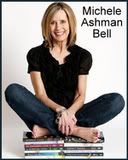
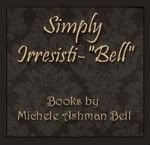





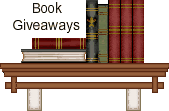
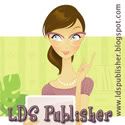















































-page-001.jpg)












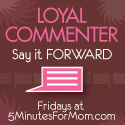
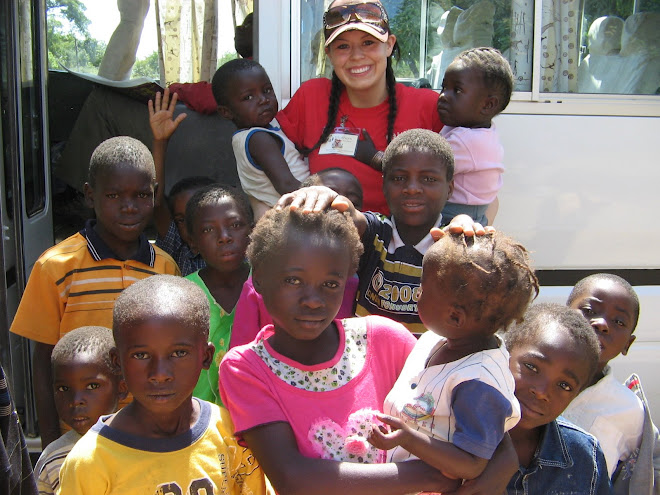
3 comments:
Wow!! what an exciting interview. You help me become acquainted with a talented mind. Enjoyed the intervew all the way through
Thanks for posting this interview, Michele. I really enjoyed doing it and appreciate the opportunity. I hope your readers find it entertaining, distracting, engrossing, perplexing, amusing, maybe even bewildering--anything so long as it isn't boring.
Good luck with your own work and keep in touch!
What a fun interview. Thanks for the advice Clint. Can't wait to read the book with my son.
Blessings,
Cami
Post a Comment